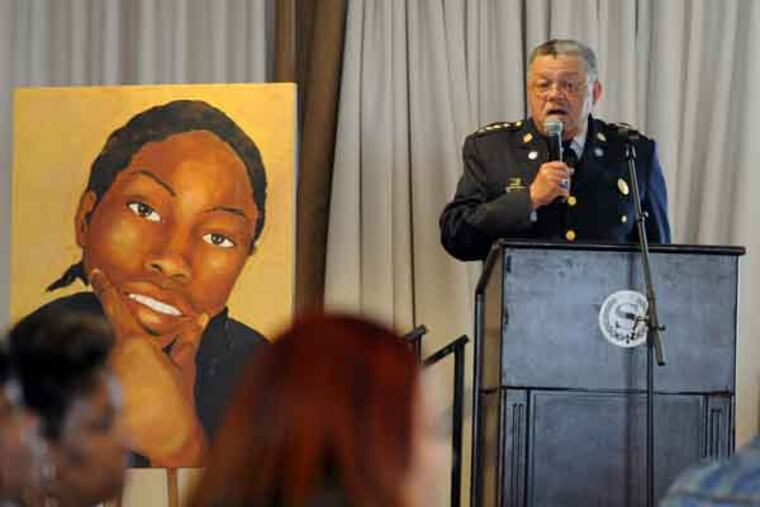Mothers group holds national antiviolence conference
Addressing urban violence as a problem that grips cities large and small, the Philadelphia-based organization Mothers in Charge hosted its first national conference on the impact of violence this week.

Addressing urban violence as a problem that grips cities large and small, the Philadelphia-based organization Mothers in Charge hosted its first national conference on the impact of violence this week.
The two-day conference at the Sheraton Philadelphia Downtown Hotel, which concluded Tuesday, featured grassroots activists, law enforcement officials, medical experts, and others.
Dorothy Johnson-Speight, founder and executive director of the group, said her organization was hosting a national conference "because violence is a national problem."
Mothers in Charge is a group that works to fight violence. Its members include many mothers who lost children to homicide. It has chapters in New York City, Chicago, San Francisco, and Kansas City.
Many of the 100 people at the conference Tuesday were members, wearing trademark white T-shirts airbrushed in pink and blue with the message "Stop the Violence."
A panel discussion, titled "The Cost of Violence," featured Police Commissioner Charles H. Ramsey, Philadelphia Prison System Commissioner Louis Giorla, City Councilman Curtis Jones Jr., and Michelle Breslaver, director of U.S. programs for the Institute for Economics and Peace, a New York-based nonprofit.
Ramsey said increased dialogue between police and communities "is critically important" in combating urban violence.
"We don't have months to wait," he said, noting that many homicides are solved in the first 48 hours.
Giorla said the cost of violence has affected the city's prison system.
"The cost of incarceration is expensive," he said, adding that the prison system's budget for 2014 is $238 million.
Breslaver said poverty plays a key role in violence: "The most violent areas have the highest rates of poverty, the highest dropout rates, and the highest teen-pregnancy rates."
Between panel discussions, Ramsey said that this year, Philadelphia has had 86 homicides, 30 fewer than last year.
"We're going to continue to work as hard as we can. We're just getting into the spring and summer now, which obviously is a time of year when we should be concerned about violence," Ramsey said.
Another panel discussion focused on relations between police and the communities they serve.
Chief Scott Thomson of the new Camden County police force said he makes it a point to talk to every homicide victim's survivors. He was the chief of the now-disbanded Camden police.
"It's important that police travel that journey with those families," he said, noting that police should not become desensitized to violence.
He said that last year, Camden, which has about 75,000 residents, had a record 67 homicides.
Mattie Scott, a leader of Mothers in Charge in San Francisco, who said her son was slain for a gold chain, said communities "have to have dialogue with the police," adding that families of homicide victims, even when grieving, must help police solve and prevent homicides.
Johnson-Speight said that while it is difficult to measure the progress activists are making against violence, the groups are making a difference.
"Ten years ago, people weren't even talking about violence the way they are now," she said. "I think we were able to raise the consciousness level, but more importantly, to be able to develop evidence-based programs."